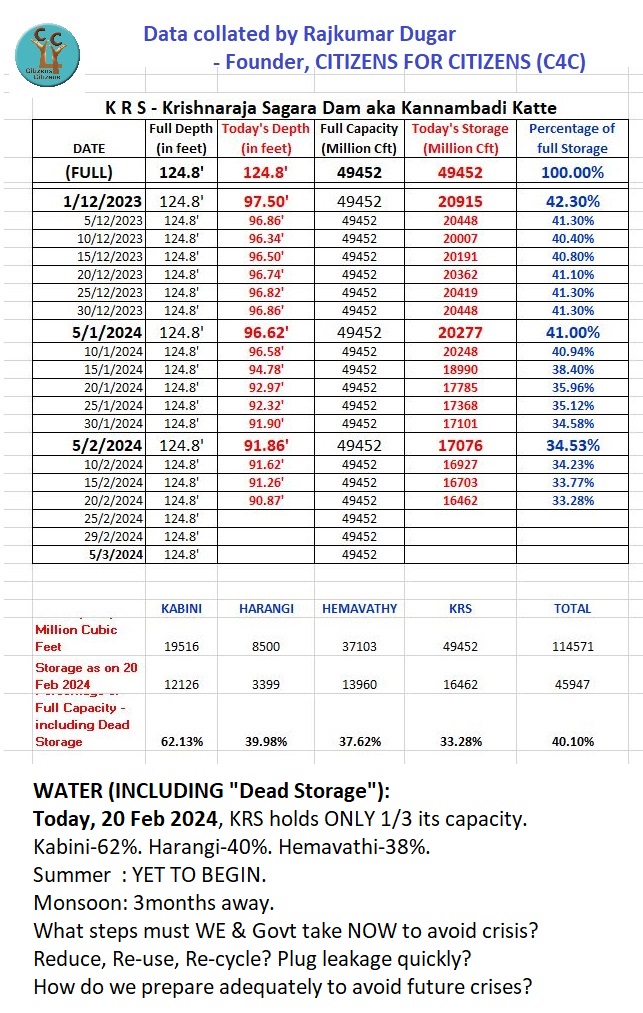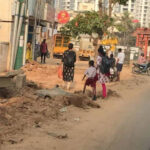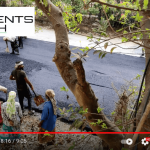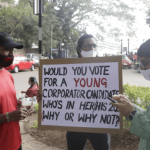
Bengaluru, India: Over 1,500 residents have signed an online petition demanding that authorities take immediate action to address the city’s worsening water crisis. In the meanwhile, the Bangalore Water Supply and Sewerage Board (BWSSB) is deploying additional resources to address the city’s water shortage. BWSSB Chairman RP Manohar has stated they are deploying 68 tankers, adding 18 more to their existing fleet, sinking more borewells, repairing RO water plants, and hiring 200 private tankers to bridge the gap. However, Manohar emphasized that the long-term solution lies in the completion of the Cauvery V Stage project, expected by the end of April.
Residents Face Irregular Supply, Exploitative Prices:
Citizens in areas like Hebbal, HSR Layout, Banaswadi, and JC Nagar are experiencing increasingly infrequent water supply and shorter supply hours. Additionally, an estimated 20% of the city relies on private water tankers, facing exploitative pricing with costs reaching up to Rs 2000 per month. Bengaluru residents are facing a critical water shortage, with Bruhat Bengaluru Mahanagara Palike (BBMP) identifying 58 areas experiencing severe water scarcity, including major tech hubs like Mahadevapura and Bommanahalli. The situation is further compounded by the BWSSB listing an additional 257 locations facing acute water scarcity, encompassing areas like RR Nagar, Yelahanka, and Dasarahalli. This widespread water shortage poses a significant challenge for the city’s residents and businesses.
Petition Demands Action:
The petition calls on the Bangalore Water Supply and Sewerage Board (BWSSB) and Bruhat Bengaluru Mahanagara Palike (BBMP) to:
- Immediately address the water shortage: BWSSB should secure alternative water sources like leasing private borewells and renting additional tankers. BBMP should regulate and subsidize water tanker prices.
- Tackle the root causes: Mandate industries and businesses to use treated tanker water, run public awareness campaigns on water conservation, and enforce rainwater harvesting regulations in commercial establishments and societies.
Crisis Deepens, Residents Demand Solutions:
Bengaluru has been facing water scarcity for over four years, with the situation projected to worsen. Despite citizen pleas, the existing water management remains inadequate. The city requires an additional 1,680 million litres per day (MLD) to meet its growing needs, but currently only has access to 1,850 MLD.
Residents Blame Poor Management, Not Just Monsoon:
While poor monsoon impacts water levels, residents believe it’s not the sole cause. They urge authorities to implement stricter regulations for borewell digging, build effective rainwater harvesting systems, and revitalize the city’s lakes to ensure sustainable water management. Here is some Feb 20, 2024 data gathered by Citizens For Citizens (C4C) that makes the situation graver.

Time Running Out for Bengaluru:
With summer approaching, residents are calling for immediate action from authorities to prevent a full-blown water crisis in Bengaluru. This petition is addressed to Dr Ram Prasath Manohar, Chairman BWSSB, Tushar Girinath, Chief Commissioner BBMP, and DK Shivakumar, Minister for Water Resources Department Karnataka.
A History of Thirst
Bengaluru, India’s “Silicon Valley,” has grappled with a water crisis for decades, a stark contrast to its booming technological advancements. This chronic problem stems from a confluence of historical factors and ineffective solutions, leaving the city in a state of perpetual thirst.
From Historical Dependence to Modern Scarcity:
Historically, Bengaluru relied on local wells and lakes for sustenance. However, rapid urbanization in the 20th century, coupled with neglect of traditional water sources, led to increased pressure on resources.
The Quest for Solutions:
To counter the growing crisis, authorities turned to distant rivers like the Cauvery for water supply. This reliance on external resources, however, created inter-state disputes and vulnerability to fluctuating rainfall patterns.
Efforts and their Shortcomings:
Several attempts have been made to address the crisis, including:
- Building dams and reservoirs: While projects like the Cauvery V Stage aim to increase water availability, delays and dependence on monsoons limit their effectiveness.
- Rainwater harvesting: Regulations exist, but enforcement and public awareness remain inadequate.
- Borewell drilling: While providing temporary relief, it exacerbates the problem by depleting groundwater reserves.
The Perpetuating Cycle:
Despite these efforts, the crisis persists due to:
- Poor infrastructure: Leakage and inefficient distribution systems lead to significant water loss before it reaches consumers.
- Encroachment on lakes: Urban sprawls have encroached upon and polluted natural water bodies, diminishing their storage capacity.
- Industrial water usage: Industries often rely on water-intensive processes, adding pressure on limited resources.
A City Parched for Change:
Bengaluru’s water crisis stands as a stark reminder of the need for sustainable water management practices. Without addressing the root causes – infrastructure improvements, conservation efforts, and responsible water usage across sectors – the city’s future prosperity may be jeopardized. It is crucial to implement effective and long-term solutions to ensure that Bengaluru can quench its thirst and continue its technological and economic journey.



